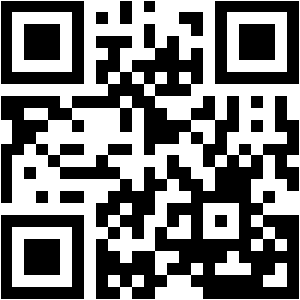HFS105 TMA01:Critique of Sociotechnical Systems Contexts in Accident Analysis, Jan 2025 Singapore
| University | Singapore University of Social Science (SUSS) |
| Subject | HFS105 Cognition and Information Processing |
Tutor-Marked Assignment 01
Question 1
Accidents are sudden or severe events that lead to injury or death. The systems approach has been proposed to explain and predict accidents. It assumes that the interactions between components in the system result in accidents occurring. The approach also suggests that some components are more direct causes of the accidents than others.
In this TMA, you will be writing an 800-word critique of the essay appended below. Specifically, apply the sociotechnical systems contexts learned in this course to discuss the effectiveness of the following essay in describing the sociotechnical systems contexts that surround accidents.
Description of the Sociotechnical Systems Contexts That Surround Accidents
Sociotechnical systems contexts refer to the complex interplay between social and technical factors within an organization or a system. Accidents often occur within these contexts due to a variety of interacting factors. Here’s a breakdown of the sociotechnical systems contexts surrounding accidents:
Hire a Professional Essay & Assignment Writer for completing your Academic Assessments
- Organizational Culture: The culture within an organization can greatly influence safety practices and attitudes towards risk. A culture that prioritizes efficiency over safety or where employees feel afraid to report concerns can contribute to accidents.
- Work Practices and Procedures: The way work is organized and carried out can impact safety. This includes procedures for maintenance, training protocols, shift schedules, and communication channels. Poorly designed or implemented procedures can increase the likelihood of accidents.
- Human Factors: Human behaviour, cognition, and performance play a significant role in accidents. Factors such as fatigue, stress, complacency, and inadequate training can lead to errors or lapses in judgment that result in accidents.
- Technology and Equipment: The design, maintenance, and usability of technology and equipment can either mitigate or contribute to accidents. Issues such as equipment failure, poor ergonomic design, or inadequate safety features can increase the risk of accidents.
- Regulatory Environment: The regulatory framework within which an organization operates sets standards and requirements for safety. Compliance with regulations can impact the likelihood of accidents, but regulatory gaps or inconsistencies can also create vulnerabilities.
- Communication and Decision-Making: Effective communication and decision-making processes are crucial for identifying and mitigating risks. Poor communication channels, hierarchical barriers, or decision-making based solely on short-term goals can lead to oversight or neglect of safety concerns.
- External Factors: Factors external to the organization, such as economic pressures, market demands, or natural disasters, can influence safety practices and contribute to accidents indirectly.
Understanding these sociotechnical systems contexts is essential for accident investigation, prevention, and the development of robust safety management systems. It requires a holistic approach that considers the interactions between technical components and social dynamics within the organization or system.
Buy Custom Answer of This Assessment & Raise Your Grades
Language and References
(10 marks)
Recommended readings:
- Choo, A. K. (2023). HFS105 Cognition and information processing. Singapore University of Social Sciences.
- Wickens, C. D., Gordon, S. E., Liu, Y., & Lee, J. (2004). An introduction to human factors engineering (2nd ed.). Pearson Prentice Hall.
- AVET104 Fundamentals of Biology Assignment Brief 2026 | Temasek Polytechnic
- BMK3015 Major Project Assessment Brief 2026 | Temasek Polytechnic
- BM4364 Customer Experience Management and Design ICA 2 Assignment Guide | NYP
- PSB6013CL Business Research Project Assignment Brief 2026 | PSB Academy
- A2429C Human Systems in Health and Disease Assignment Questions 2026 | RP
- PS6004EFA Research Project Dissertation 2026 | Coventry University
- S2440C Health Psychology Assignment Brief 2026 | Republic Polytechnic
- HS2255 Law & Ethnics Assignment Brief 2026 | Nanyang Polytechnic
- CH2123 Chemical Thermodynamics Assignment Questions 2026 | NTU
- OMGT2229 Strategic Supply Chain Assignment Question 2026 | RMIT University


